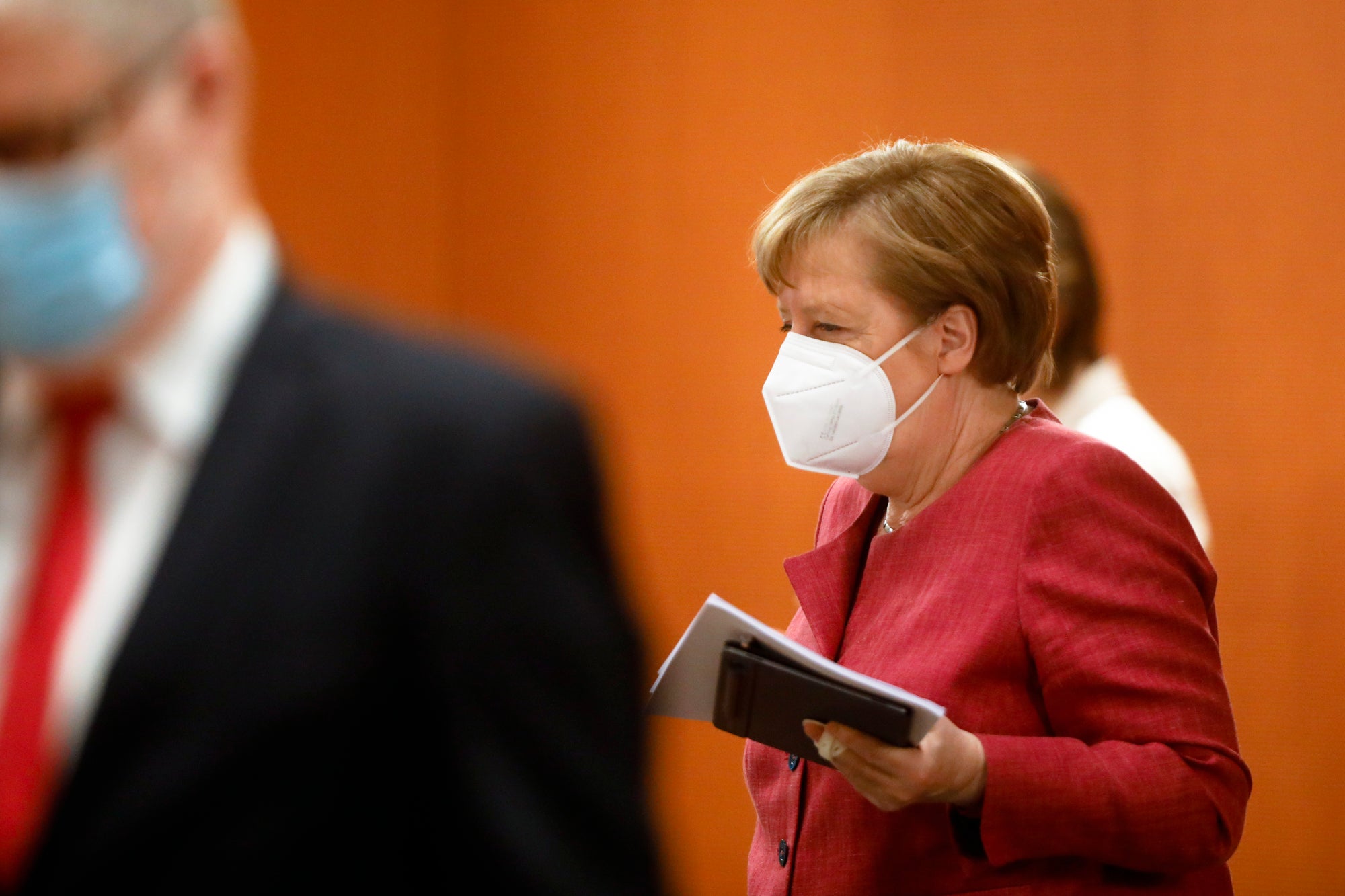France, Germany plan billions in pandemic recovery spending
Europe is ramping up its recovery plan

Your support helps us to tell the story
From reproductive rights to climate change to Big Tech, The Independent is on the ground when the story is developing. Whether it's investigating the financials of Elon Musk's pro-Trump PAC or producing our latest documentary, 'The A Word', which shines a light on the American women fighting for reproductive rights, we know how important it is to parse out the facts from the messaging.
At such a critical moment in US history, we need reporters on the ground. Your donation allows us to keep sending journalists to speak to both sides of the story.
The Independent is trusted by Americans across the entire political spectrum. And unlike many other quality news outlets, we choose not to lock Americans out of our reporting and analysis with paywalls. We believe quality journalism should be available to everyone, paid for by those who can afford it.
Your support makes all the difference.France and Germany together laid out plans for billions in spending from the European Union s pandemic recovery fund aimed at fighting climate change and boosting the use of digital technology across the economy.
The finance ministers of the EU's two biggest economies on Tuesday underlined their joint determination to use the spending to transform Europe s economy and get the continent growing again as it lags behind the U.S. and China in rebounding from the pandemic recession.
Under the fund's formula, France should get around 40 billion euros ($48 billion) while German Finance Minister Olaf Scholz said his country planned about 30 billion euros ($36 billion) in spending. Scholz said that half the money would go to environmentally friendly projects and a quarter to spreading the use of digital technology. He said the fund would build on domestic relief and stimulus measures already passed by the German government
He called the fund “a groundbreaking step for Europe.”
French Finance Minister Bruno Le Maire urged the European Commission, the EU’s executive branch, to quickly evaluate the plans so that money can start flowing to members states from the 750 billion euro ($906 billion) fund as early as July, noting that the U.S. and China have recovered faster. He said that since the fund was approved “we have lost too much time” and that “Europe must remain in the race.”
Spain’s Cabinet also approved its proposal for how it wants to invest the recovery funds. Spain which has suffered heavily from the pandemic, is set to receive 140 billion euros ($166 billion) — half in direct payments and the other half in loans — from the EU's recovery plan, second only to Italy. In line with EU priorities, Spain’s left-wing government has placed a heavy emphasis on creating a greener economy while boosting productivity for an economy that shrunk by 11% last year.
The money comes with pressure from Brussels to address problems identified by the European Commission's review of members states' economic policies. Spain, for instance, is being asked to overhaul labor laws, tax practices and pensions. Countries with low tax regimes such as Ireland or Cyprus are under pressure to discourage aggressive tax planning by multinational companies.
Italy's 221.1 billion euro ($267.3 billion) recovery plan includes steps to reduce its backlog of court cases, considered a drag on businesses that can't get commercial disputes resolved quickly.
___
Sylvie Corbet reported from Paris.